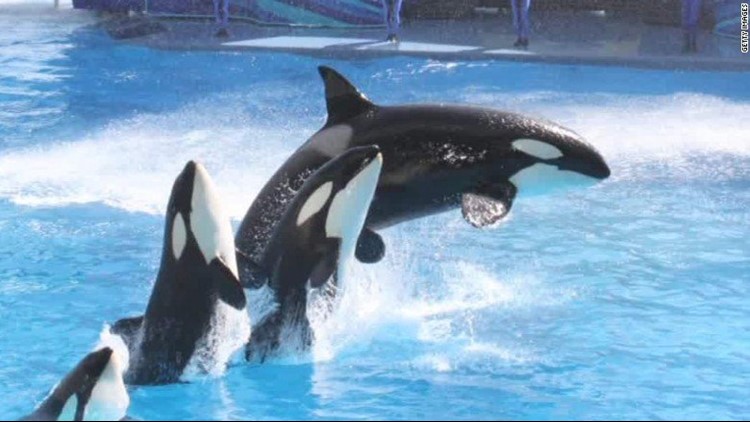SeaWorld is ending its practice of killer whale breeding following years of controversy over keeping orcas in captivity.
The company announced Thursday morning the breeding program will end immediately. The company also announced a partnership with the Humane Society.
The company will also end theatrical shows and introduce “new, inspiring natural orca encounters.” The new shows will begin next year at the SeaWorld Entertainment Inc.’s San Diego park.
The announcement comes only weeks after the park blogged that their breeding whale Tilikum appears to have an infection in his lungs. Tilikum has been with SeaWorld for 23 years and is blamed for the death of trainer Dawn Brancheau in 2010. The documentary “Blackfish” chronicled Tilikum’s life and fueled criticism of SeaWorld by animal rights’ activists.
SeaWorld president and CEO Joel Manby said in a statement that the company introduced more than 400 million guests to orcas and is proud of its part in contributing to the human understanding of the whales. Manby said that it was a difficult decision to end the breeding program and end theatrical shows involving orcas.
But he says society’s attitudes have changed about captive orcas and SeaWorld had to move where society was going. Humane Society CEO Wayne Pacelle says that while his company and SeaWorld had been longtime adversaries, it’s time to turn criticism into collaboration.
When Manby was asked if SeaWorld may eventually end dolphin shows as well as theatrical orca performances, he said: “Stay tuned on that.”
Reactions to ending Orca performances
The Alliance of Marine Mammal Parks and Aquariums says it supports SeaWorld’s decision but cautions that losing public displays of orcas may threaten conservation efforts in the long run.
SeaWorld is a member of the Virginia-based organization. President and CEO Kathleen Dezio said in a statement that SeaWorld was “a principled company” and an industry leader, but that no company could withstand the prolonged protests that have targeted SeaWorld for nearly three years.
Dezio says the film “Blackfish” spread misinformation and lies, and she said its success may boost campaigns to remove other animals from zoos, aquariums and marine parks.
She says SeaWorld has motivated millions of people to care about whales in the wild. She added: “No institution in the world has contributed more than SeaWorld to a scientific understanding of orcas.”
But of course, not everyone agrees that education was SeaWorld’s intention.
The director and star of the 2009 documentary “The Cove” say people won’t lose their connection with whales and dolphins if theme parks stop putting them on display.
The film by director Louie Psihoyos showed activist Ric O’Barry campaigning against the killing of dolphins in Japan.
The director says keeping marine mammals captive has always been about money, not education. He says children will love dolphins and whales just as they love dinosaurs, extinct now for millions of years.
O’Barry once trained dolphins for the television series “Flipper” before advocating for their freedom. He says SeaWorld is making a step in the right direction, but he says all of its marine mammals should be released into sanctuaries.
O’Barry says the public would support such places even without animal performances.



